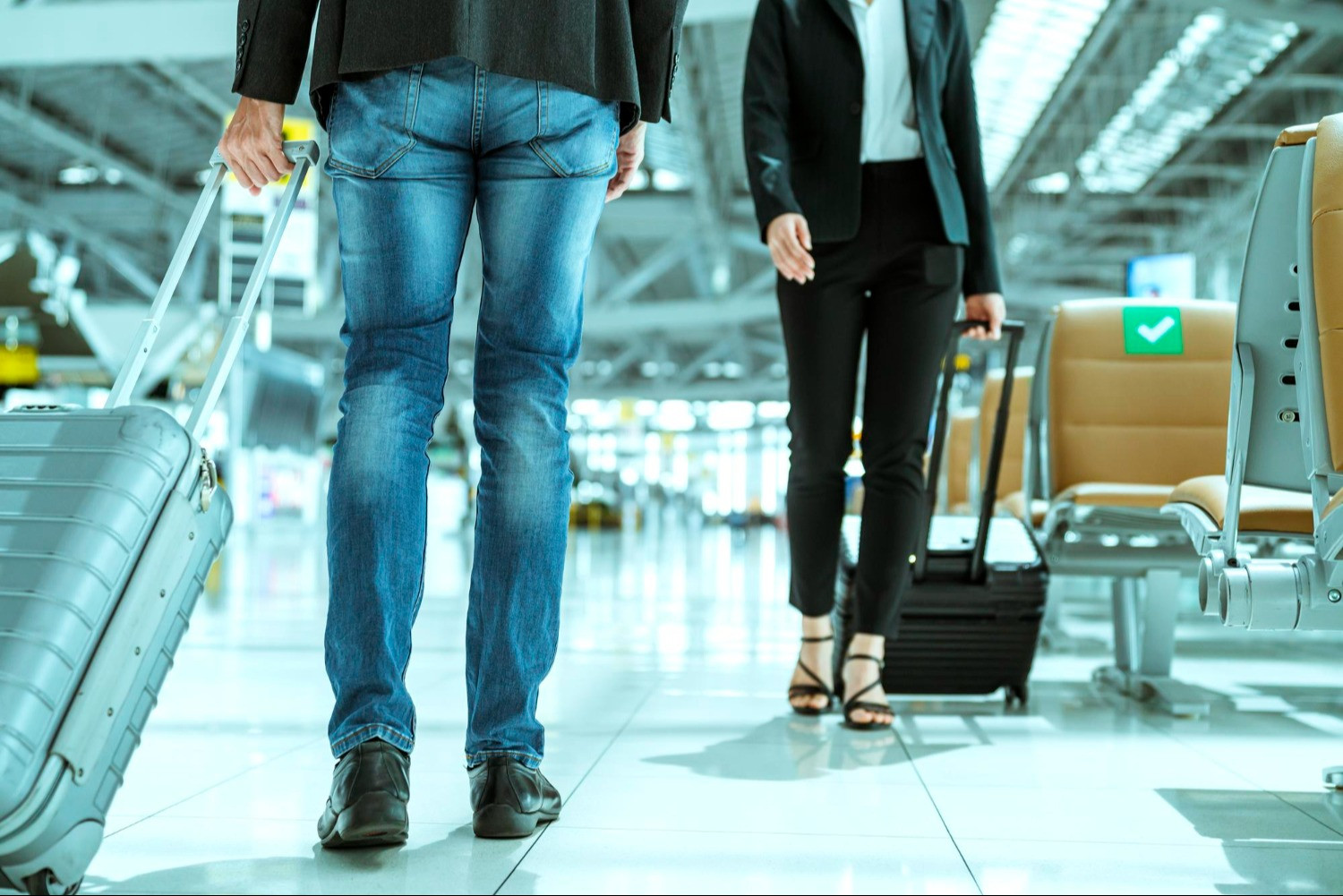1. Check your airline's baggage policy
First and foremost, it's essential to check the baggage policy of the airline you're flying with. Each airline has its own rules concerning the size, weight and number of bags allowed in the hold. Some airlines already include checked baggage in the price of your ticket, while others only allow it on certain types of ticket (such as premium economy or business class). Make sure you understand this information at booking.
Practical tip: Check the conditions of your ticket directly on the airline's website or on your confirmation e-mail booking. This will help you avoid any surprises when you check in at the airport.
Find out more about Chalair's baggage policy, including details of available options and associated conditions.
2. Choose an optimized carry-on
To avoid paying extra for checked baggage, consider traveling with cabin baggage only. Many airlines allow one carry-on bag of a certain size and weight at no extra charge. If you can limit your personal effects to this baggage, you'll save considerably.
Practical tip: Use carry-on baggage adapted to your airline's standards. Cabin baggage is generally designed to meet the size criteria imposed by airlines. Make sure you don't exceed the weight limit, often around 10 to 12 kg, to avoid any excess.
3. Choose a lightweight, well-organized suitcase
If you absolutely must check a bag in the hold, choose a lightweight suitcase so as not to exceed the weight limits. Many travelers end up paying additional fees simply because they've exceeded the weight limit for their luggage. A lightweight suitcase will allow you to take full advantage of your weight capacity, while avoiding extra charges.
Tip: Organize your belongings strategically, distributing the weight evenly throughout the suitcase. Use compression bags for clothes to maximize space.
4. Weigh your luggage before departure
To avoid being caught short at the airport, it's always a good idea to weigh your luggage in advance. Many airports offer baggage scales, but if you prefer to avoid uncertainty, you can invest in a portable baggage scale. This will enable you to check that your luggage is within the permitted weight limit.
Tip: If you're overweight, try redistributing some of your belongings in your carry-on or other personal bags, such as a handbag or backpack.
5. Check in your luggage online
More and more airlines are allowing you to check in your baggage online, giving you the opportunity to pay your baggage fees before you get to the airport. If you know you'll need to check in a bag, you can benefit from lower rates by paying these fees online in advance, rather than paying them at the airport, where prices can be higher.
Practical tip: check whether the airline offers this option at booking or a few days before departure. It can save you a lot of money.
6. Choose a flight with baggage allowance
Some airlines offer ticket options where hold baggage is included in the ticket price. If you're traveling with several pieces of luggage, or if you need to take bulky items with you, it may be more advantageous to choose a ticket that includes one or more hold baggage items, rather than purchasing additional options.
Tip: Compare the prices of the different options and see if a ticket with baggage included might be cheaper, even if the basic ticket price is higher.
7. Use luggage transport services
If you really don't want to have to worry about managing your hold luggage, several companies specializing in luggage transport offer delivery services to your home or directly to your hotel. These services can save you from having to pay hold baggage fees, while allowing you to travel lighter.
Tip: Research these baggage transport services and compare rates with airline surcharges. Sometimes this solution can be both economical and practical, especially if you're going away for a long time.
8. Take advantage of promotions and special offers
It's important to keep an eye on airline promotions and special offers. From time to time, many airlines offer free or discounted checked baggage. If you book your flight during a promotional period, you may benefit from a discount on baggage fees.
Tip: Sign up for airline newsletters or follow them on social networks to be alerted to special offers and promotions on checked baggage.
By applying these simple tips and being well prepared, you can avoid the extra cost of checked baggage on your next trip. By checking your airline's baggage policy, opting for a carry-on or choosing more economical options, you can travel at a lower cost. Always remember that planning ahead is the key to avoiding unpleasant surprises at the airport. Enjoy your trip!
Image by Lifestylememory on Freepik

